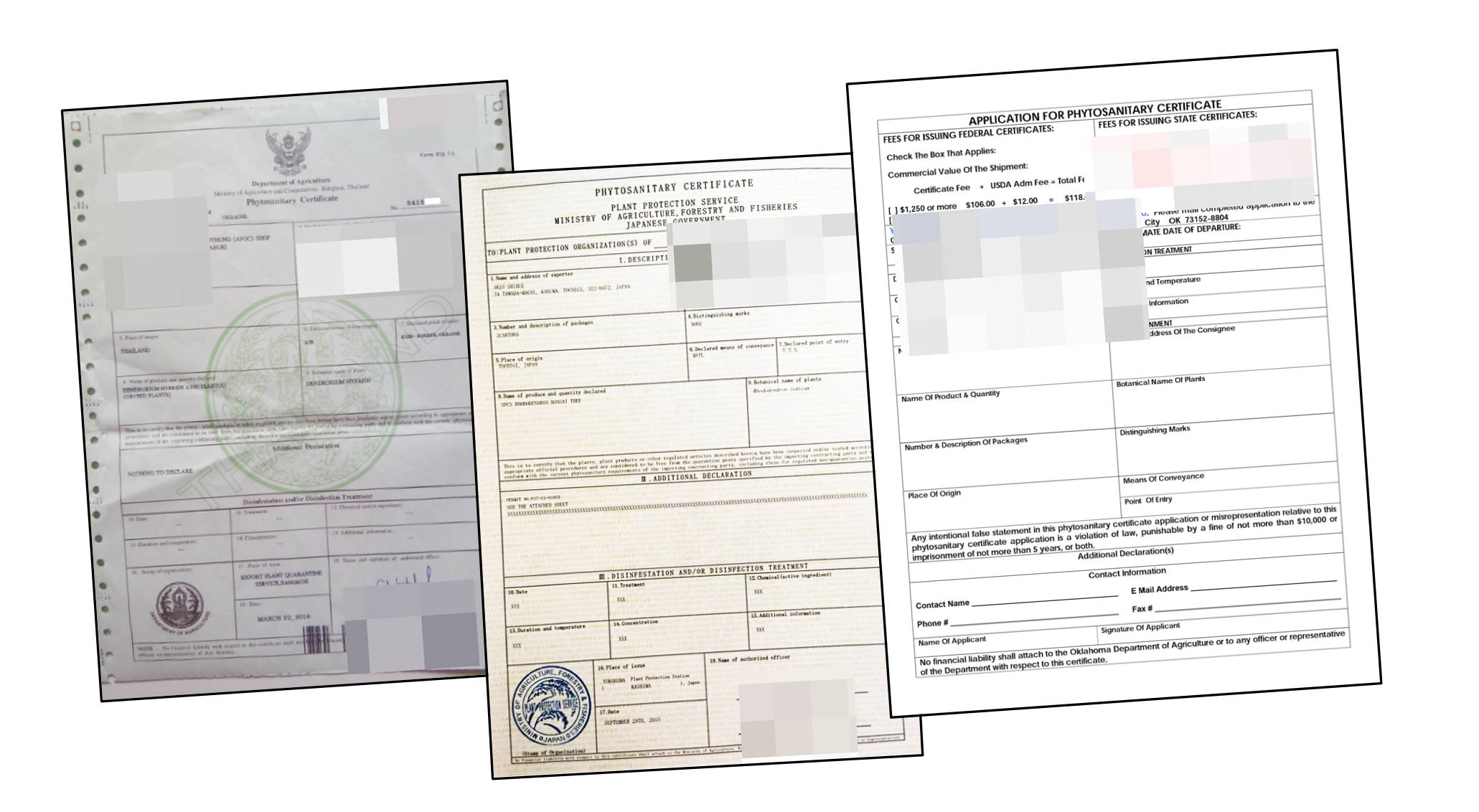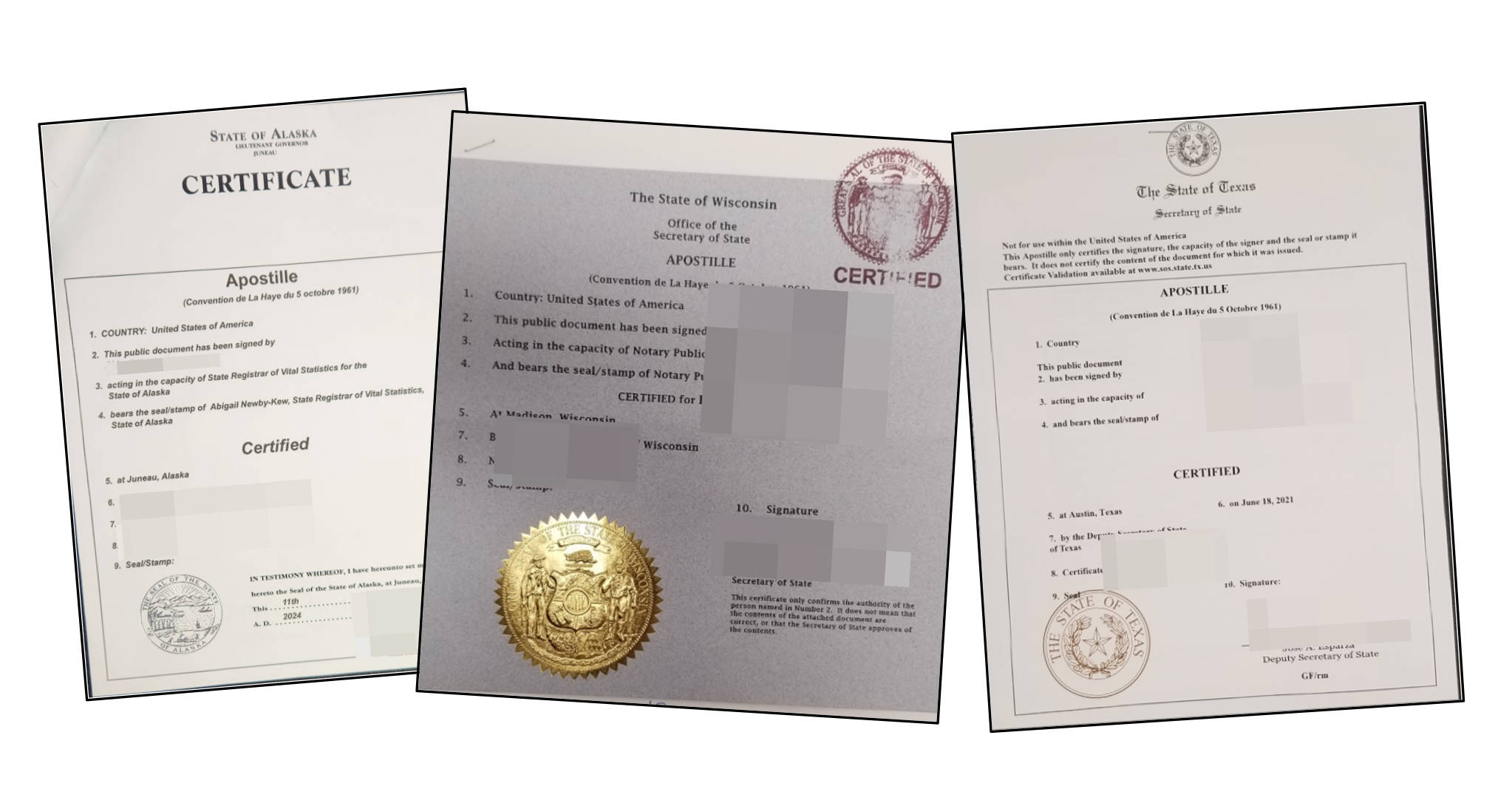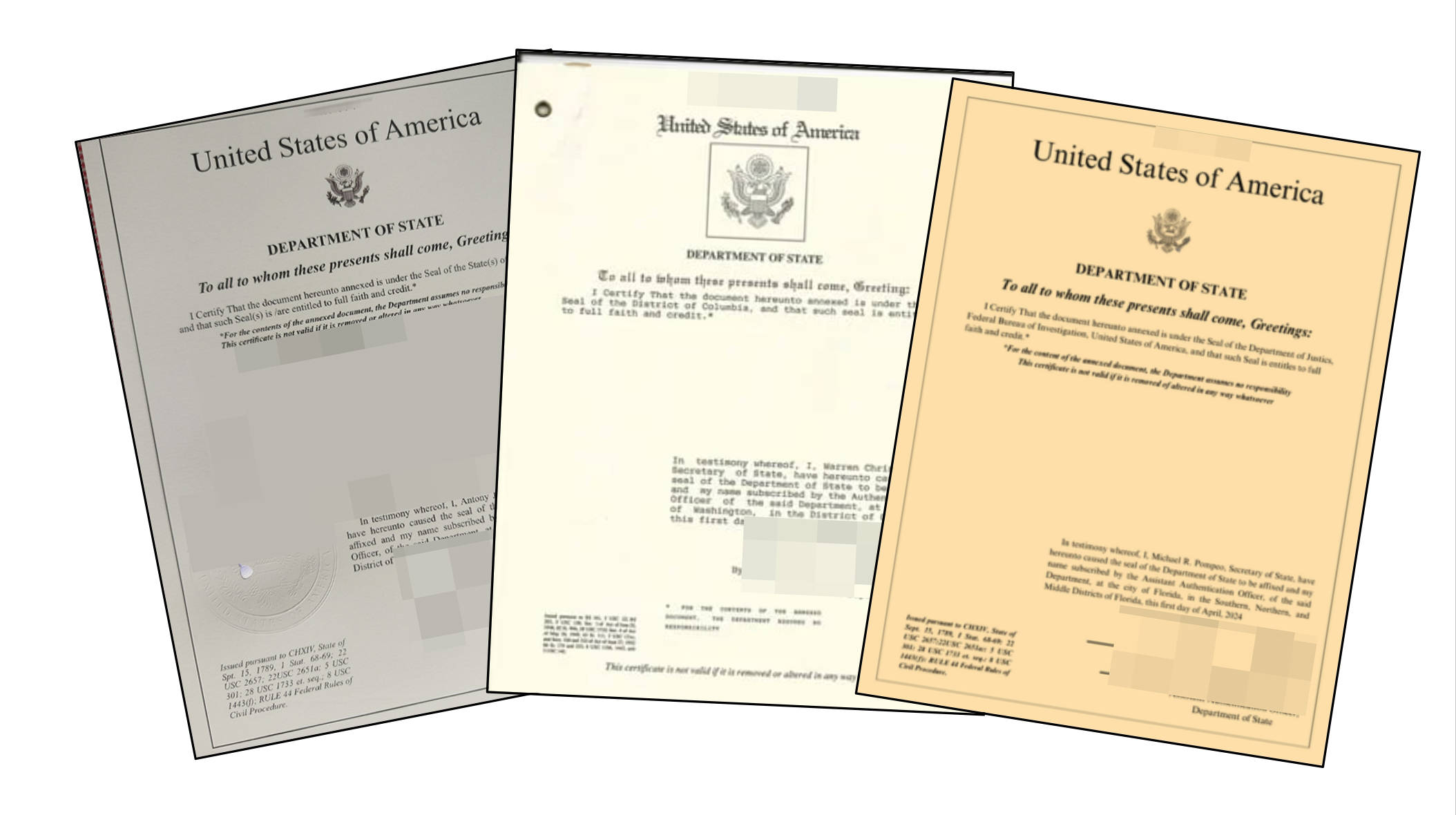American Plants Certificate Hague certification, consulate certification

With the globalization of transporting biological materials, especially plant products, specific documents and certificates are required to ensure legal and safe international transactions. The U.S. Plant Certificate, along with its related Hague Apostille and consular authentication, play a crucial role in this process. The following will provide a detailed explanation of these certificates, their authentication requirements, and the relevant procedures.
What is the U.S. Plant Certificate?
The U.S. Plant Certificate is an official document issued by the United States Department of Agriculture (USDA) or an authorized state agricultural agency. This certificate verifies that plants and plant products comply with the phytosanitary regulations of the exporting country and are eligible for entry into the destination country. Its primary purpose is to prevent the spread of pests and diseases, ensuring the health and safety of plant products. The certificate typically includes details such as the plant species, quantity, place of origin, and any special treatments or quarantine measures.
Case Study: The U.S. Plant Certificate in Action
Here’s a real-world example to help you better understand the role of the U.S. Plant Certificate in international trade and import/export inspections.
Imagine you are a small-to-medium-sized florist in China, specializing in the import and export of fresh-cut flowers. You regularly import specialty ornamental plant seeds from the U.S. or purchase high-quality flower seedlings from American suppliers, then resell them at Shanghai’s flower trade market.
However, many countries have strict regulations on imported plants to prevent the introduction of harmful pests, fungi, bacteria, and other invasive species that could threaten local agriculture and ecosystems. To comply with these regulations, U.S. authorities require you to obtain an official Plant Certificate before exporting the plants.
This certificate acts as an official “health report” for the plants, verifying that they meet inspection and quarantine standards and are free from dangerous pests or diseases. Without this document, your shipment might face delays, rejections, or even destruction upon arrival in China.
Where is the U.S. Plant Certificate Issued?The U.S. Plant Certificate is typically issued by agricultural authorities in the United States. For example, the Animal and Plant Health Inspection Service (APHIS), a division of the U.S. Department of Agriculture (USDA), is often responsible for issuing these certificates.
The specific issuing location depends on the origin of your plant products. For instance, if your seedlings come from California, a local branch of the California Department of Agriculture may conduct the initial inspection and issue preliminary documentation. This would then be endorsed at the federal level by APHIS.
In some cases, state-level agencies issue the certificate, but final confirmation must come from a federal authority or an authorized institution.
With an official Plant Certificate issued by U.S. authorities, importing these plants into China becomes much smoother. This certificate helps you secure clearance from Chinese customs and quarantine departments, significantly reducing the risk of entry refusal, port delays, or even destruction of your shipment.
For a more concrete example: Suppose your business is based in Shanghai, and you import specific seedlings from the U.S. to sell in Shanghai’s flower markets and horticultural centers. When your customers want to ensure the plants are compliant and safe, you need to provide reliable documentation.
The U.S. Plant Certificate serves as a crucial document in this process. In China, it acts as proof that your imported plants are legally sourced and of high quality, helping your business run more smoothly and gain customer trust.
There is an important new development to consider. On March 8, 2023, China joined the Hague Convention Abolishing the Requirement of Legalization for Foreign Public Documents (commonly known as the Apostille Convention), which officially took effect in China on November 7, 2023.
Before this, any foreign official documents—including a U.S. Plant Certificate—had to go through a lengthy consular or embassy authentication process before being legally recognized in China. However, now that China is a member of the Apostille Convention, foreign documents that have undergone the Hague Apostille process in their country of origin no longer require additional consular authentication for use in China.
This means that if your U.S. Plant Certificate has been properly Apostilled in the U.S., you can use it directly in China without needing further embassy or consular verification.
Now comes the key question: Who can help you get the Apostille for your U.S. Plant Certificate?
If you’re busy managing your business in China and unfamiliar with the U.S. authentication process, you may need to hire a professional agency in the U.S. to handle it on your behalf. For example, you can work with notary offices or authentication service providers in Washington, D.C., such as the Washington D.C. Notary Office.
As the capital of the United States, Washington, D.C. has many certification agencies and notary offices that can coordinate with the U.S. Department of State and other relevant authorities to process Apostille certification for your document.
With the help of a Washington, D.C. notary office, your U.S. Plant Certificate will receive an official Apostille stamp issued by the U.S. Department of State, ensuring that it meets the required format and standards.
This means that when you present this document in China, it will be legally recognized without needing additional authentication from a Chinese embassy or consulate in the U.S.—saving you time and effort.
What Problems Does This Process Solve for You?Ensures Legal and Compliant Use in China – With the Apostille, your document is legally recognized in China, eliminating the hassle of complex consular authentication procedures.
Speeds Up Customs Clearance – A U.S. Plant Certificate with Apostille allows for faster and smoother customs processing, reducing uncertainties and delays in international logistics.
Saves Time and Effort – By using the professional services of a Washington, D.C. notary office, you avoid the need to personally visit U.S. government offices. This helps you overcome challenges such as time zone differences, language barriers, and legal formatting requirements, making the process much more convenient.
This case provides a real-world look at the entire process—from obtaining a U.S. Plant Certificate, to importing and selling plants in China, to securing an Apostille through agencies in Washington, D.C.. Each step helps ensure smooth international trade for your plant products.
For a businessperson looking to establish a long-term presence in the cross-border flower and seedling industry, professional services and a global certification system like this are key foundations for stable and sustainable growth.
We share case studies to help you better understand relevant processes and real-world applications.
Please note: Any company names or personal names mentioned in this explanation are purely fictional. If they happen to coincide with real entities or individuals, it is purely coincidental.
These case studies are provided as reference materials to offer a framework for thinking and decision-making. When applying this information, please carefully consider your specific situation and, if necessary, seek professional advice or further verification before making any decisions.
What is U.S. Apostille Certification?
Apostille certification is an international authentication method established under the 1961 Hague Convention. It is designed to simplify the legalization process for official documents between member countries, allowing public documents from one country to be legally recognized in another without requiring additional consular authentication.
For a U.S. Plant Certificate, if the destination country is a member of the Hague Convention, the document only needs to go through Apostille certification to be officially recognized in that country.
What is U.S. Consular Authentication?
If the destination country is not a member of the Hague Convention, a U.S. Plant Certificate must go through consular authentication instead of an Apostille.
This process involves multiple steps, including:
- State-level authentication,
- Further authentication by the U.S. Department of State, and
- Final certification by the destination country’s consulate in the U.S.
Consular authentication ensures that the document is legally recognized in non-Hague Convention countries, though the process is more complex and time-consuming compared to Apostille certification.
Washington, D.C. Notary Office Offers Certification Services
To help businesses and individuals handle plant certificates and related authentications, notary offices in Washington, D.C. provide comprehensive certification services. These services include:
- Assisting clients in preparing and submitting required documents
- Handling Apostille certification or consular authentication
- Ensuring that all paperwork meets strict international trade regulations
By using these professional services, applicants can save significant time and effort, ensuring their plant products can be exported smoothly and legally to destinations worldwide.
Through these detailed steps and authentication processes, international plant trade can proceed efficiently while safeguarding global ecological security and economic interests. The Washington, D.C. Notary Office plays a valuable role in facilitating and streamlining this process.
Apostille Sample

Authentication Sample
